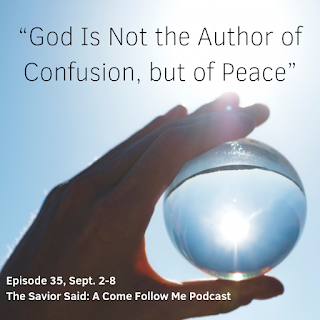Portrait of Rebekah
I love Rebekah. I love her diligence and her closeness to the Lord. I love that when she had a problem, she knew exactly where to go- to the Lord. Her story is fairly simple. There's not a lot of extra historical text to add in, so I didn't feel like I had quite enough information for an episode. I did want to create a portrait of her though, so here it is! I'll be back next month with an episode about Rachel and Leah (and maybe I'll squeeze a little Rebekah in too). If you want some fun reading while you're waiting, check out the book Rebekah by Orson Scott Card! Click here to download to download a PDF of the artwork. Art may be used for non-commercial personal and educational purposes. If shared, please attribute Lexie Austin/The Savior Said as author.






Comments
Post a Comment